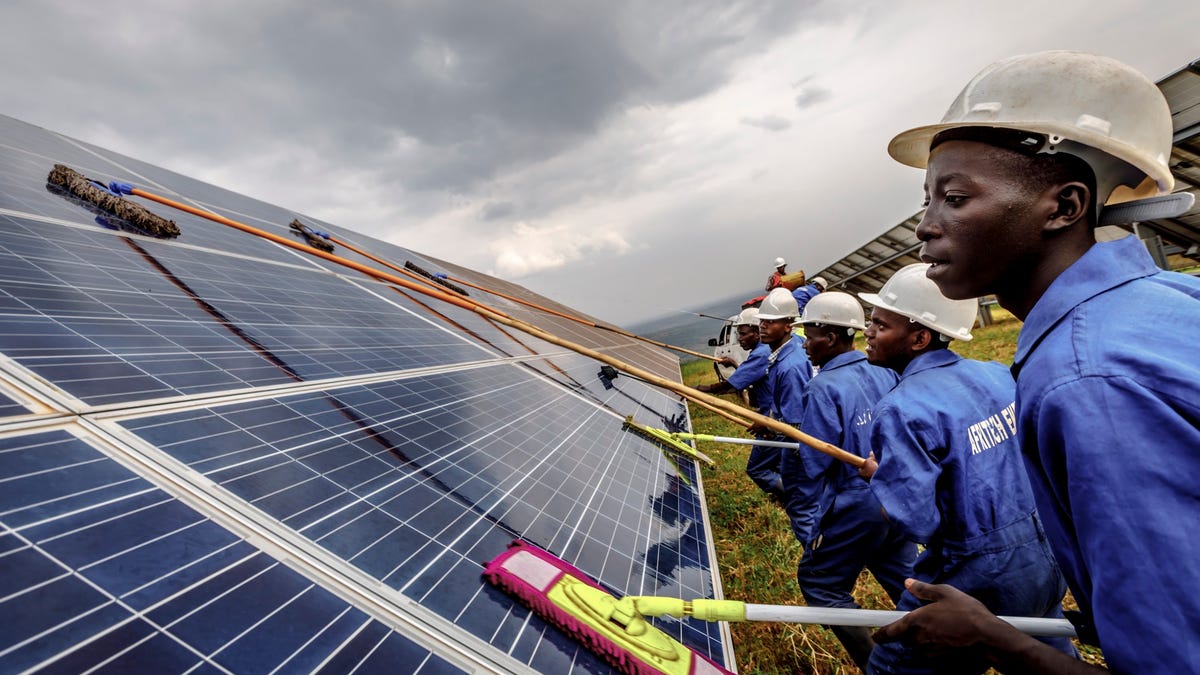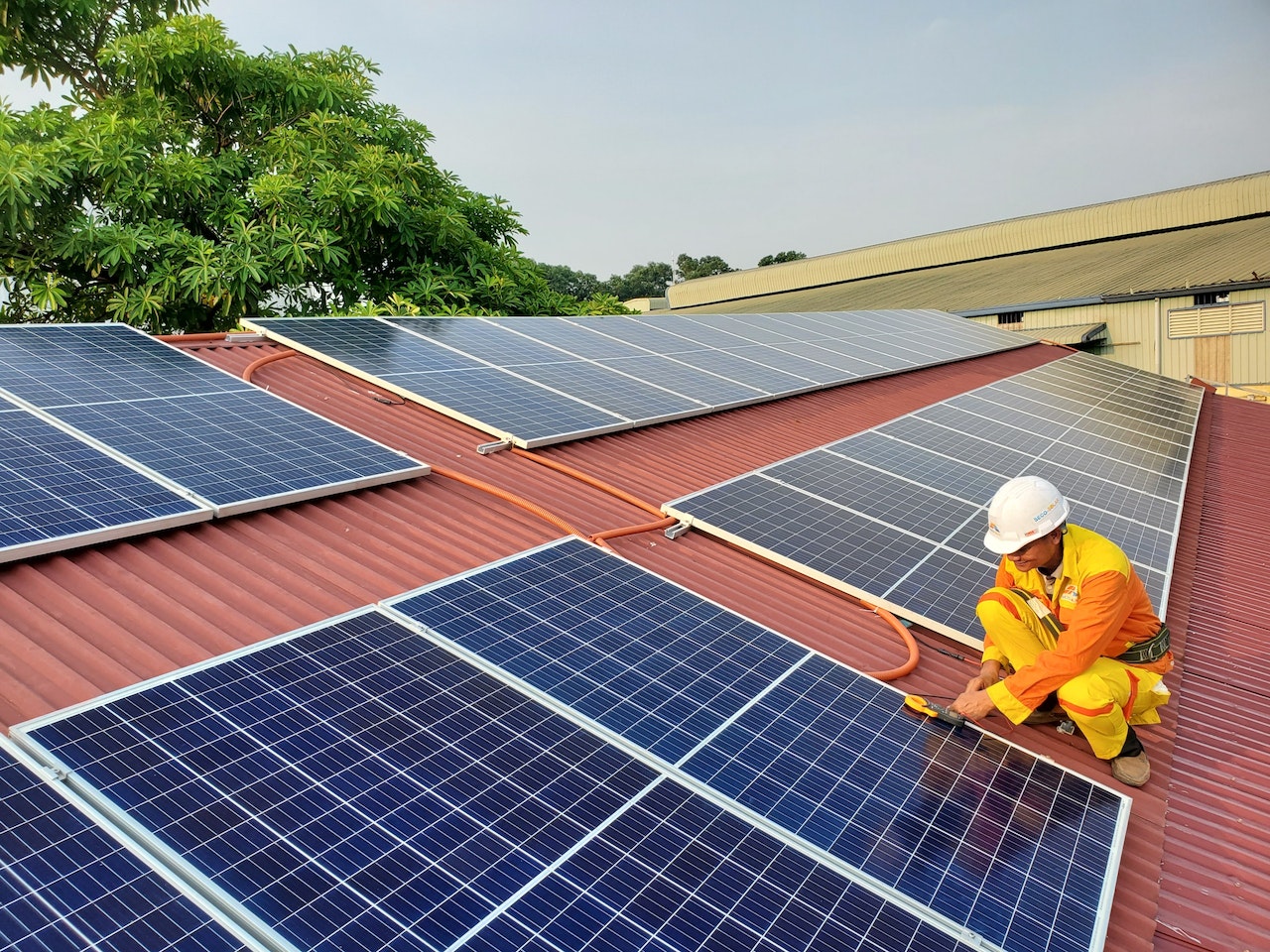How to Select the Right Solar Energy Installation for Your Power Requirements
Selecting a proper solar energy installation needs a methodical strategy that begins with a clear understanding of your power consumption patterns and anticipated future requirements. Aspects such as the sort of solar modern technology, installment costs, and available rewards play essential functions in making an informed choice - solar photovoltaic. Furthermore, the option of a certified installer can not be neglected, as their experience can considerably affect the efficiency and durability of your system. As you consider these considerations, you might find that the best path is not always the most apparent one.
Assess Your Power Demands
Examining your power requires is a vital very first action in the solar power setup process. Comprehending your current and future energy intake will certainly assist the style of an effective solar system tailored to your needs.
Consider seasonal variants in energy intake, as certain months might require even more power as a result of heating or air conditioning needs. Furthermore, assess any type of organized adjustments in way of life or residential property, such as the acquisition of electric lorries or home developments, which may increase your energy demands in the future.
Once you have a detailed understanding of your energy intake, you can identify the suitable solar capability required to meet those needs. This analysis not just helps in sizing the solar installment yet likewise educates choices concerning power storage solutions and potential grid connection needs. solar photovoltaic. Ultimately, properly determining your energy needs makes certain that your solar energy system runs successfully, delivering the benefits of renewable resource in alignment with your intake patterns

Evaluate Solar Modern Technology Options
When taking into consideration a solar power installment, it is necessary to review the numerous solar modern technology choices readily available to ensure the system aligns with your power needs and budget plan. The key innovations include monocrystalline, polycrystalline, and thin-film photovoltaic panels, each offering distinct benefits and drawbacks.
Monocrystalline panels are understood for their high effectiveness and efficiency in limited room, making them ideal for property installments with less roofing system area. Nonetheless, they often tend to be much more expensive. Polycrystalline panels, while somewhat less effective, are typically much more budget friendly and can be an excellent selection for larger installments where area is not a restriction. Thin-film solar panels are light-weight and versatile, excellent for unconventional surface areas, however they usually have lower efficiency and need even more area to produce the same power result.
In enhancement to panel types, consider solar inverters, which transform the straight current created by the panels into alternating current for home usage. String inverters, microinverters, and power optimizers each have one-of-a-kind advantages that can impact system performance. Assessing these alternatives will certainly aid you make an enlightened decision that fulfills your power requirements successfully.
Consider Setup Expenses
Comprehending setup prices is essential for anybody thinking about a solar power system. These costs can vary substantially based on a number of factors, including system dimension, kind of panels, and installation intricacy. A common property solar setup may range from $15,000 to $30,000 before motivations, which can be a substantial ahead of time investment.
To properly evaluate setup expenses, it is important to acquire detailed quotes from numerous solar providers. These quotes should break down the expenses of tools, labor, permits, and any extra accessories required for the installment. Pay very close attention to the quality of materials being used, as higher-quality panels and inverters can cause far better efficiency and longevity, potentially balancing out greater initial expenses.
Furthermore, take into consideration the long-term ramifications of setup costs. A cheaper setup might conserve money in advance yet might result in higher maintenance costs or lowered power manufacturing gradually. It is also advisable to examine funding choices, such as solar car loans or leases, which can influence your general monetary commitment.
Research Local Motivations
Exploring regional rewards can significantly affect the total price of a solar energy installation. Numerous regions provide a range of monetary motivations focused on advertising eco-friendly power usage, making solar energy more easily accessible and economical for property owners and companies alike.
These rewards may consist of government tax credit scores, state refunds, and regional energy company programs that provide cash money incentives or net metering options. For circumstances, the Federal Financial Investment Tax Obligation Debt (ITC) enables you to deduct content a considerable percentage of your solar installation prices from your government taxes. State-specific motivations can even more enhance these savings, frequently in the type of straight cash money refunds or tax debts.
In addition, some city governments may provide real estate tax exceptions for solar installments, making sure that your financial investment does not increase your residential property tax obligation obligation. Researching these rewards can uncover considerable savings, which can affect your decision on the dimension and kind of planetary system to install.

Pick a Trustworthy Installer
Choosing a trusted installer is crucial to making certain the success and longevity of your solar energy system. The installment process significantly affects the performance and effectiveness of your photovoltaic panels, making it essential to pick a specialist with a tested performance history. Begin by looking into local installers via online evaluations and testimonies. Web sites such as the Better Service Bureau can provide understanding into customer contentment and solution dependability.
Following, validate the installer's qualifications, including licenses, certifications, and insurance policy. A credible installer ought to hold accreditations from acknowledged organizations, such as the North American Board of Qualified Energy Specialists (NABCEP), suggesting a high level of knowledge. Furthermore, make inquiries regarding the installer's experience with similar projects, specifically in your area, as neighborhood environment and regulations can influence installment practices.
Demand multiple quotes and contrast them not only on price yet additionally on the top quality of equipment and guarantees provided. A credible installer should provide transparent information regarding their items and services, assisting you make an informed choice. By investing time in choosing a reliable you could look here installer, you will certainly improve the total efficiency and toughness of your solar power system.
Conclusion
In final thought, choosing the appropriate solar energy installation demands a comprehensive evaluation of energy needs, an understanding of offered solar technologies, and a careful factor to consider of installment expenses. Checking out regional motivations can improve financial advantages, while choosing a trusted installer ensures quality craftsmanship and integrity. solar photovoltaic. By methodically analyzing look at this web-site these elements, individuals can attain an optimal solar option that fulfills both present and future power demands, inevitably adding to lasting power methods and cost savings over time